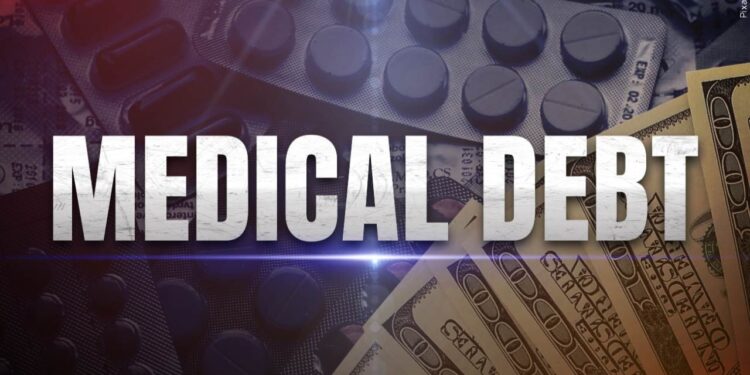(LOOTPRESS) – In a sweeping move aimed at protecting consumers, the Consumer Financial Protection Bureau (CFPB) today finalized a rule that will remove approximately $49 billion in medical bills from credit reports, impacting about 15 million Americans. The new regulation bans medical debt from appearing on credit reports used by lenders and prohibits lenders from considering medical information in their lending decisions. The rule, effective 60 days after its publication in the Federal Register, is expected to enhance privacy protections and curb coercive debt collection practices.
A Major Shift in Credit Reporting
The CFPB’s research found that medical debt on credit reports is an unreliable indicator of a borrower’s ability to repay loans. Consumers often face inaccurate billing or are charged for expenses that should be covered by insurance or financial assistance programs. The new rule reflects these findings, stating that medical debts provide little predictive value to lenders and can unfairly harm consumers’ creditworthiness.
“People who get sick shouldn’t have their financial future upended,” said CFPB Director Rohit Chopra. “The CFPB’s final rule will close a special carveout that has allowed debt collectors to abuse the credit reporting system to coerce people into paying medical bills they may not even owe.”
The bureau estimates the rule will facilitate the approval of approximately 22,000 additional affordable mortgages annually and could boost credit scores by an average of 20 points for affected individuals.
Key Provisions of the Rule
The finalized regulation includes the following provisions:
- Prohibition on lenders using medical information: Lenders can no longer use medical information, including data about medical devices like prosthetics, to make lending decisions or as collateral for loans.
- Ban on medical bills in credit reports: Consumer reporting agencies are prohibited from including medical debt information on credit reports sent to lenders, ending a common tactic used by debt collectors to pressure payments, regardless of a bill’s accuracy.
The rule does allow lenders to consider medical information in specific scenarios, such as verifying medical-based forbearances or medical expenses tied to loan applications.
Building on Previous Reforms
The CFPB’s action builds on recent changes by the three major credit reporting agencies—Equifax, Experian, and TransUnion—which agreed to remove certain types of medical debt from credit reports, including collections under $500, following the CFPB’s 2022 recommendations. FICO and VantageScore, the leading credit scoring companies, also announced reductions in the impact of medical debt on credit scores.
Additionally, the CFPB has issued guidance emphasizing that debt collectors violate federal law when pursuing inaccurate or invalid medical debts. In 2022, the bureau published a report highlighting the debilitating effects of medical debt and clarified obligations under the No Surprises Act.
Eliminating a Longstanding Exception
The rule amends Regulation V under the Fair Credit Reporting Act (FCRA), eliminating an exception that previously allowed creditors to consider medical debts. This carveout had enabled debt collectors to exploit the credit reporting system, coercing consumers into paying inaccurate or fraudulent bills.
By closing this loophole, the CFPB aligns its regulations with Congress’s mandate to safeguard consumer privacy and protect borrowers from harm caused by medical debt.
A Path Toward Fairer Lending
The CFPB’s latest move represents a significant step in shielding consumers from the financial burden of medical debt. With stronger privacy protections and a focus on accurate credit reporting, the rule aims to prevent medical crises from derailing financial stability for millions of Americans.










